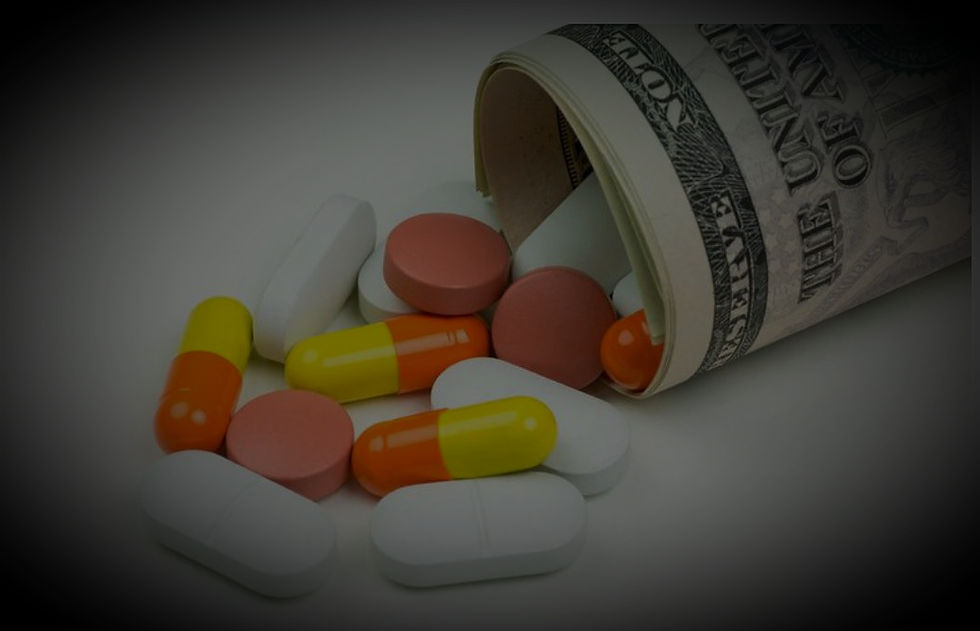FTC plans to sue top 3 PBMs over insulin prices: WSJ
- Jul 12, 2024
- 3 min read
The Federal Trade Commission (FTC) is looking to take legal action against the three largest pharmacy benefit managers (PBMs) in the United States: CVS Health (CVS), UnitedHealth Group (UNH), and Cigna (CI), according to a report from The Wall Street Journal. The potential lawsuit stems from concerns over escalating drug prices and alleged anticompetitive practices, particularly for medications like insulin.
Yahoo Finance health reporter Anjalee Khemlani breaks down the details, exploring the implications for the healthcare industry, consumers, and the broader pharmaceutical market.
For more expert insight and the latest market action, click here to watch this full episode of Market Domination Overtime.
This post was written by Angel Smith
To watch the video of this news report, click here
Video Transcript
The Federal trade Commission is preparing to sue the nation's three largest drug managers over tactics for negotiating prices for drugs including insulin.
This follows a two year investigation into whether the companies steer patients away from less expensive medicines.
The FTC plans to file lawsuits taking aim at the business practices related to rebates, brokered with drug manufacturers.
Joining us now with more is Yahoo Finance's own Angelique Lani.
This has been going on for a little while here and it looks like it's taking the next step.
That's right, Julie, we know that the FTC just released their report after two years of looking at these pharmacy benefit manager managers, those PD MS, the largest of which are CV S, United Health as well as Cigna.
And so these companies are really under fire.
They're really the target of the FTC after a very lengthy report that showed that they do increase drug prices.
Now, when this lawsuit will actually be filed is unclear, but we do know that the FTC is uh the likes of insulin.
For example, we know that those three big drug makers as well.
Uh Eli Lily Novo nodes and Sanofi are part of that.
Now, we did hear from CV S saying that they claim to have led the way in driving down costs as low as $25 lower than the Biden administration's copay of 35 which we know is a result of the Affordable Care Act.
Now, this has been part of a drive down by the drug maker themselves.
Eli Lilly being one of the first to decrease the copay for certain types of insulin, but there are other synthetics that still remain pretty high.
Now, the question of whether or not these PB MS do any good in helping to reduce cost is the question at hand we've seen, for example, Avis Humira, if you take a look at the market share a year after biosimilars came on the market, we still see Humira take the lion's share of the market even though they were listed at the same tier as the formula, which is how these PBMs uh sort of decide which drugs are top tier and the like and covered the most in your plan.
So that just shows that despite the fact that there was competition on the market, it didn't do much to budge Avi's leads.
So that is really the question at hand is if there are, if they are in fact supposed to be doing their job, why haven't we seen the lower prices and why haven't we seen market competition take place?
And that's sort of what the FTC is looking at.
So again, the report from the Wall Street Journal not giving us much more political, also reporting that it will be beyond insulin.
But that is one of the key focuses for the FTC at this time.
And this is not the first time that the PBMs have come under fire, right.
So we've got this FTC investigation, but there are members of Congress who've tried to introduce legislation to try to further regulate this industry, right?
That's right.
And we've seen over the years, if you will a blame game between the different parts of the health care industry.
And so Congress has been a part of trying to figure out where exactly the levers are that increasing prices for Americans and why the US ends up paying more.
If you talk to drug makers, they will blame it on these pbms saying that in order for them to include a rebate, they have to inflate the prices.
Meanwhile, the PBM is saying, well, it's on the drug makers to decide whatever they want to do and insurers, of course, then pointing in both directions.
So we've seen a lot of this, we've seen Congress try to tackle this with various bills over the last few years.
And so really the entire government is trying to figure out how to exactly find the right levers to pull.
So as not to unintentionally increase prices all over again.




Comments